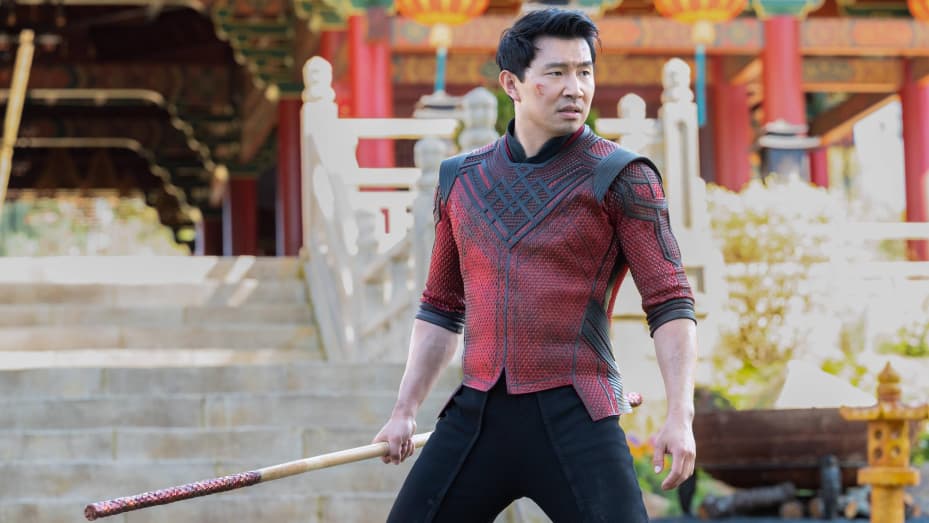Pictured above: Simu Liu as Shang-Chi in “Shang-Chi and The Legend of The Ten Rings.”
Courtesy of Marvel Studios
By Aubrey Carr
Marvel’s latest blockbuster, Shang-Chi and The Legend of The Ten Rings was released last week, and boy, did it make a bang.
Being the 25th movie of the Marvel Cinematic Universe (MCU), it would be easy for Destin Daniel Cretton’s Shang-Chi to fall into the same formulaic narrative as its predecessors, yet the movie does anything but that.
The film relishes its beautiful uniqueness, breaking away from the crowded superhero scene with a fantastic portrayal of family, culture and friendship.
Though the movie does suffer from some of the same comedic pitfalls as previous Marvel flicks, Shang-Chi is the MCU at its best.
Simu Liu stars as the titular character, a carefree Chinese American trying to escape his turbulent family history.
Shaun lives a completely ordinary life. He and his best friend Katy (Awkwafina) are struggling to come to terms with adulthood as they spend their nights drinking, driving and singing off-key at a local karaoke bar.
The only issue? Shaun’s name is actually Shang-Chi, and he was raised as an assassin by his crime-lord father, Wenwu (Tony Leung).
Wenwu is powered by “The Ten Rings,” a mystical set of bracelets that provide the wearer with great strength and immortality.
After marrying his wife Jiang Li (Fala Chen) and having two children, Shang-Chi and his sister Xialing (Meng’er Zhang), Wenwu believed he had hung up his life of crime for good. When Jiang Li tragically passes away, Wenwu resorts to vengeance, raising his son to be a warrior and a killer.
Having run away from his father’s criminal ways, Shang-Chi (now calling himself Shaun) is trying to keep his background in the past, but when his father goes after him and his little sister, Shang-Chi is forced to face the demons of his past to save the people he loves.
Where Shang-Chi truly flourishes is in its character dynamics. The running thread of the movie is the exploration of a broken family. The protagonist’s relationship with his abusive father borders between love and hatred throughout the film, it’s tragically three-dimensional and shows the true emotions of a toxic parent and child.
The other notable bond is between Shang-Chi and Katy. Most of the pair’s screentime is spent on comedic moments and humorous gags of varying quality, but they shine during their emotional moments. The friendship thankfully breaks Marvel’s trend of forcing romance on platonic male-female relationships and the film is all the better for it.
While the movie does unfortunately fall into some of the more negative clichés of the MCU – most notably the unnecessary abundance of computer-generated imagery (CGI) in the third act, Shang-Chi’s biggest issue is its overreliance on comedy.
It’s not that the humor isn’t funny, it is. There were moments when the entire theater filled with laughter at a quip or joke. The issue is that it’s not needed.
Shang-Chi is at its best when it allows itself to focus on the character’s emotions. In those moments of sincerity, the characters are allowed to exist as fully developed people, rather than just tokens used for laughs. The film is set back only when those somber moments are interrupted with needless farce.
All-in-all, Shang-Chi and The Legend of The Ten Rings is some of the greatest work of recent comic book cinema. Though it struggled with tonal balance, Shang-Chi’s touching dynamics and realistic characters more than made up for it.
[4/5 Stars]



